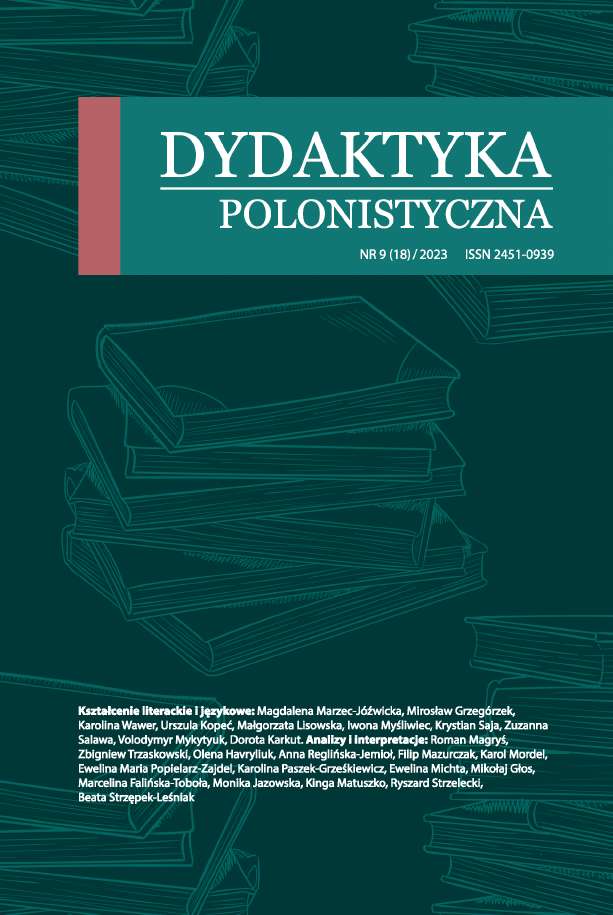Emma Bovary – an (unrequited) passion. From the customs of reading general literature in high school
DOI:
https://doi.org/10.15584/dyd.pol.18.2023.2Keywords:
novel, didactics, reading, realism, naturalism, FlaubertAbstract
The text deals with the untapped potential of the classics of popular literature (more specifically, realist and naturalist prose) in secondary school. The starting point for the reflection focused on Flaubert’s novel is the title character, evoking sympathy, desire, indifference, distaste, disgust, and the essayism of the scandalists Mario Vargas Llosa and Vladimir Nabokov. Another pretext for reflection on the possible dimensions of the presence and ways of reading Emma Bovary in literature lessons is provided by the provisions of the ‚new’ core curriculum, selected textbooks for secondary schools together with methodological proposals and available didactic materials related to Madame Bovary. The book is supplemented by contributions from literary scholars, biographers and translators (including M. Żurowski, P. Śniedziewski, M. Bieńczyk, K. Szczuka, R. Lis, R. Engelking, F. Brown, J. Rousset, J. Ranciere), well–known readers and critics (e.g. A. Sygietyński, J. Parandowski, A. Bobkowski), the author himself (e.g. letters to Louise Colet), and statements of non–professional recipients (students). At the intersection of the gazes – voices – readings of the evoked persons and literary figures taken intertextually, perhaps an I n n e, exposing the solidarity of human experience, a look at one of the most important novels in the history of literature will emerge: between novel, biography and life.


